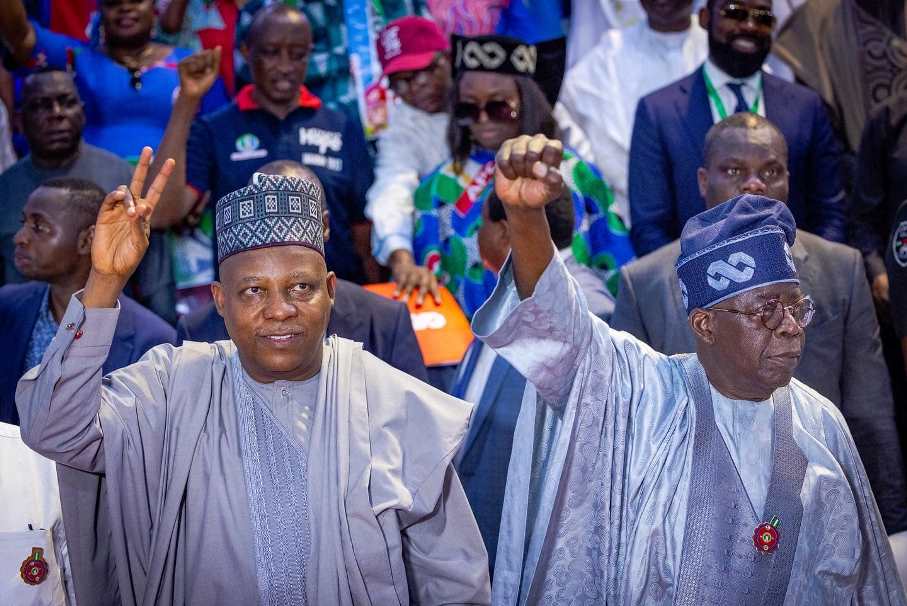By Abdulwarees Solanke
It is generally believed that democracy is the best form of government as it is the expression of popular will. Taken altogether, it will seem that where the public good is the overriding or overwhelming consideration for democratic choice, it would not lead to rancour, but popular acceptance.
The winner will absorb, aggregate and represent the interest of the loser as well, while the loser will readily concede that the decision of the majority is also in his interest and will accommodate his concerns, that under the ideal democracy, once a decision or choice is made, political competition and distractions must cease and all hands will be on deck for the common good.
But this ideal or utopian democracy finds expression only in an environment or system where citizens share common values, vision and aspirations, where they nurture neither suspicion, hate, nor animosity against one another and where cooperation, collaboration and compromise are vital indices of the political system, not disdain or unproductive political rivalry.
The Nigerian political order is not in any way near this democratic ideal which explains why we say democracy is still evolving in Nigeria. We are democratising.
The road to the Sabres Dangers of journeying in circles Prioritising public accountability for social development.
In my perception, there can’t be just a single path to attaining an ideal governmental system because of differences in history, context, values and culture, worldview and experiences, in heterogeneous countries like Nigeria, where consensus building is problematic because of the enumerated crises of nation building.
It would be difficult to graft American, Chinese, Singaporean, British or even Ghanaian democracy on Nigeria, and make a success of it. The British democracy is historically parliamentary and the American democracy is presidential or executive.
Even then, the ultimate selection of the American president is based on the Electoral College system. Each country that has perfected its democracy does so in the achievement of national consensus and cohesion in defining its national identity and guiding value system.
Such countries have conditioned the criteria of their leadership selection on who best approximates their national vision. If this is the case, we must interrogate the Nigerian democratic system to determine its suitability for resolving our crisis of nation-building.
We, therefore, need to ask: Can Nigeria achieve the ideal democracy? Is democracy even the perfect political system or the best form of government? Even if it is excellent, why is Nigerian democratisation floppy and easily compromised for the country?
What are the bulwarks for democratic sustainability in Nigeria? Are there no alternatives to democracy which will accommodate our authentic value system and truly guarantee good governance in the country?
The truth about democracy, in Nigerian context, is hijacked political system in which power does not necessarily reside in electorate. It is a compromised system lacking informed choice or where popular choice does not necessarily lead to effective government.
The nature of a political system that Nigeria needs is one that recognises consensus, where losers are also winners in some respect because of inclusiveness. Regardless of who sweeps polls, a provision will still be available for the representation of the opposition, not as losers but as stakeholders in the Nigerian Project.
The political arrangement that Nigeria needs must lighten heady competition that leaves heavy costs and casualties.
It must reduce tension during election years, and not be distracted by good and orderly governance once a government is in place. Political choice and alternatives in such a system of government must conduce to rationality, objectivity, freedom, consciousness and conscience in the determination of who is elected to power.
Also, most citizens are in agreement that such leaders and representatives emerge by political consensus and they truly approximate the values of integrity, including merit, knowledge, mental sanity, experience and physical health in its entirety in the collective interests of the citizens.
Are these guaranteed in our crawly democratisation process? We must begin to think of alternatives to redeem our flawed democracy, alternatives that promote collaboration, and not deadly competition in a zero-sum game or winner takes all politics but that which will engender peace, growth and development.
For now, our democracy is still costly, exploitative heightens competition and promotes corruption. These are the issues before the president as he assumes direct control of Nigeria’s wheel of democracy.
I’m not in doubt that every element of destiny, divine purpose, providence and national urgency have converged to honour Asiwaju in the task of pulling Nigeria away from the precipice it was sliding and leading the country to Canaanland. Oh. Allah lead Mr President aright. Protect him and ease his affairs and he takes charge of national affairs.
Abdulwarees is Deputy Director/Head of Strategic Planning and Corporate Development Department, Voice of Nigeria.
Do you have a flair for Citizenship Journalism? Share story(ies) of happenings in your area with The NewsZenith on WhatsApp: 08033668669 or thenewszenith@gmail.com
